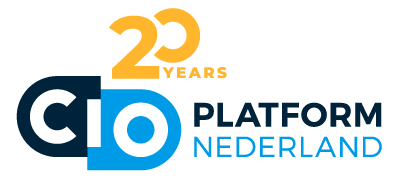Schiphol, connecting the Netherlands
Schiphol, connecting the Netherlands
 Monday 24 June 2019
Monday 24 June 2019 Innovation has been in Schiphol's DNA for more than 100 years. Continuous improvement and innovation is ongoing. On behalf of Schiphol Group, Sjoerd Blüm and Feddo Biekart took us into the IT strategy and innovation of Royal Schiphol Group.
On behalf of Royal Schiphol Group, Sjoerd Blüm and Feddo Biekart took us into Schiphol's IT strategy and innovation. Sjoerd Blüm shared the mission and ambition of Schiphol. Schiphol's mission is to facilitate optimal connections with the rest of the world to contribute to prosperity and well-being in the Netherlands and elsewhere. To this end, Schiphol wants to develop into Europe's most favorite airport for travelers, airlines and logistics service providers. This is only possible with a high quality ambition that must lead to an ultimate customer experience. In addition to keeping the organization running 24/7, this also requires innovation and investments in Schiphol's infrastructure.
To realize this high quality ambition, Schiphol is investing in reliable and flexible IT. That means a safe landscape that is up to date and ready for change, as well as simplified services, flexible application hosting, self-service and autonomously running infrastructure. In addition to this investment, there is plenty of focus on exemplary behavior of managers, cultural change among employees and flexible ways of working and partnerships. This requires innovative solutions for technology, the way of working and leadership.
Innovation has been in Schiphol's DNA for more than 100 years, where there is continuous work on improvement and innovation, according to Feddo Biekart. For example, Schiphol is fully engaged in the use of face recognition during the journey and the use of innovative CT scans for hand luggage for a seamless passenger flow. More and more buildings are equipped with sensors and smart algorithms. By making better use of existing data and adding sensor data to it, among other things, it is possible to make a building smart and to use algorithms to automatically control the environment for the presence of travelers, employees and guests, for example by regulating temperature. Schiphol has one of the largest private LoRa networks on which more than 100,000 IoT sensors are connected. By sharing customer experiences from the audience, a lively discussion started about the seamless flow of travelers, access to APIs and culture change. This resulted in good substantive questions and proposals, which hopefully will lead to new innovative solutions in the near future that can help Schiphol realize its ambition. On behalf of the CIO Platform Netherlands, Norbert Derickx thanked the speakers and the audience for the valuable interactive session.
More news
Kick off session CxOs in the Maritime Sector | Data in the Port Ecosystem
 Friday 19 July 2024 Knowledge sharing on digitization topics relevant to the maritime sector. Meetings are organized by/in cooperation with CIO Platform Netherlands and are open to organizations wishing to share knowledge on substantive issues. CIO Platform Netherlands reserves the right to deny access to meetings. full story
Friday 19 July 2024 Knowledge sharing on digitization topics relevant to the maritime sector. Meetings are organized by/in cooperation with CIO Platform Netherlands and are open to organizations wishing to share knowledge on substantive issues. CIO Platform Netherlands reserves the right to deny access to meetings. full storyA quick look back at the first six months of 2024
 Friday 12 July 2024 A nice summer blog of our new board member Edward Cox, also General Manager Louwman Group Services. Have a nice summer! full story
Friday 12 July 2024 A nice summer blog of our new board member Edward Cox, also General Manager Louwman Group Services. Have a nice summer! full storyAnnual Day 2024 - Aftermovie
 Monday 08 July 2024 A record number of CIO Platform Nederland members gathered on June 6th to celebrate our community's valuable and sociable Annual Day together under the banner 'Elevate your Digital Transformation'. Watch the aftermovie here. full story
Monday 08 July 2024 A record number of CIO Platform Nederland members gathered on June 6th to celebrate our community's valuable and sociable Annual Day together under the banner 'Elevate your Digital Transformation'. Watch the aftermovie here. full storyResearch on labour market shortages, help us reach 100 and help yourself!
 Monday 24 June 2024 The shortage of qualified ICT talent is a brake on growth for many organisations. Together with other organisations, we are committed to tackling this challenge. We would like to ask for the help of our members by filling out a survey. full story
Monday 24 June 2024 The shortage of qualified ICT talent is a brake on growth for many organisations. Together with other organisations, we are committed to tackling this challenge. We would like to ask for the help of our members by filling out a survey. full story